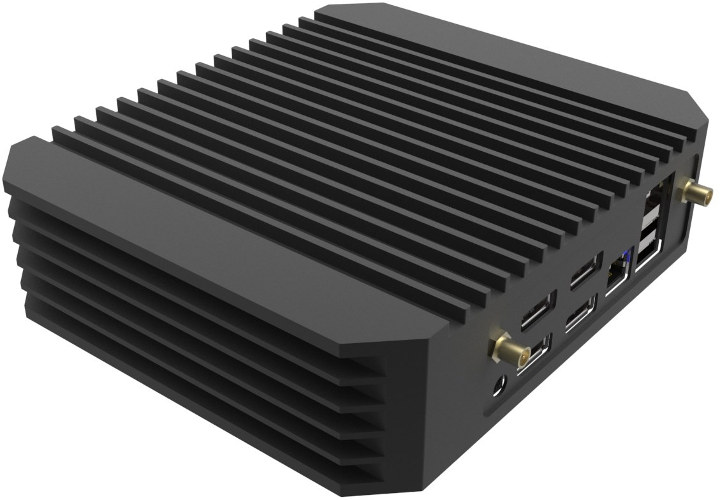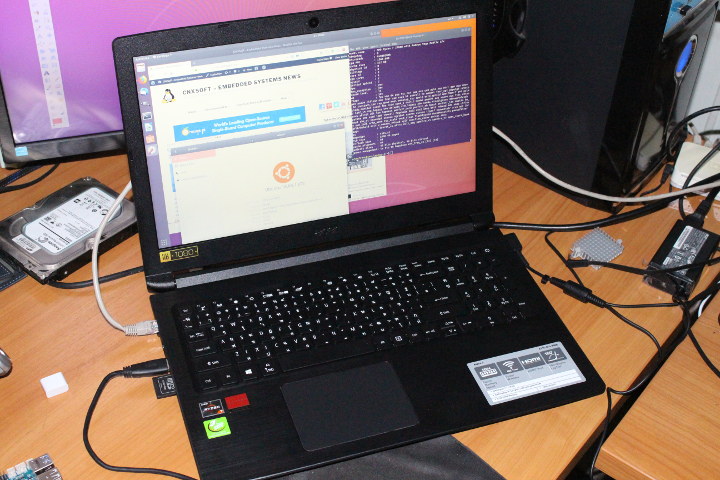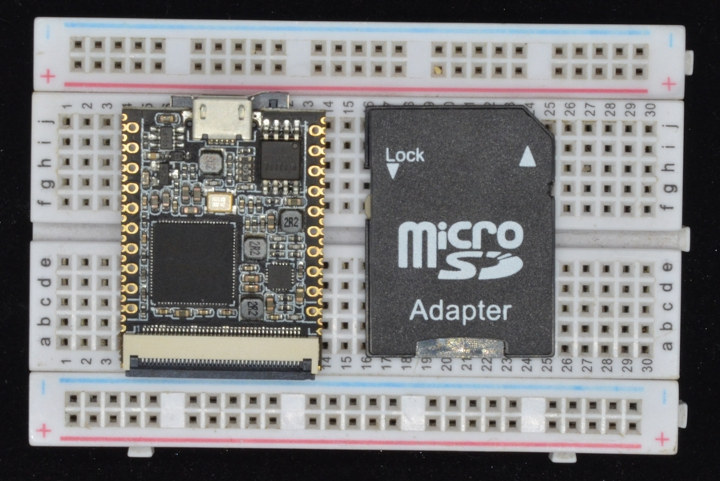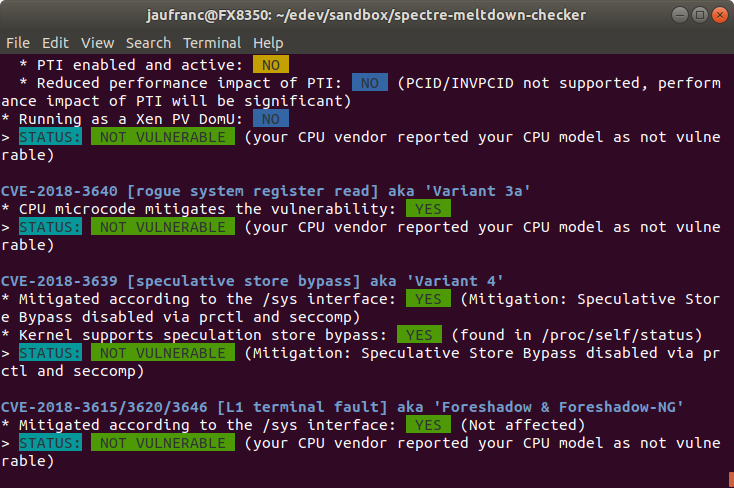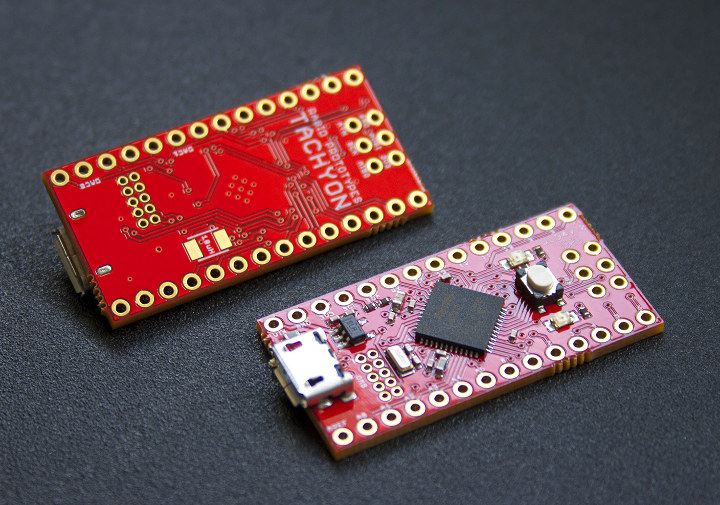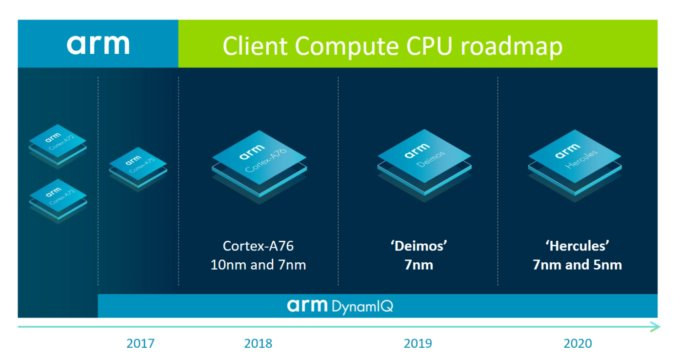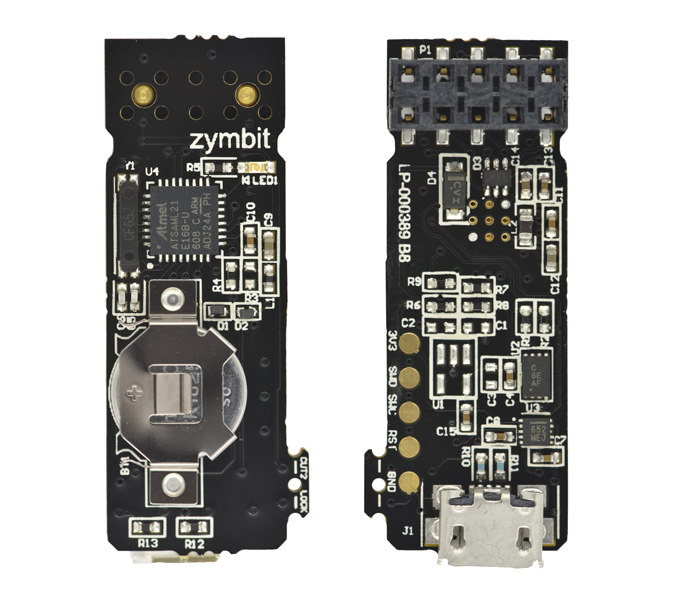AMD Ryzen Embedded V1000 processor family was introduced last February, but if you’d wanted to buy a Ryzen Embedded mini PC today, you’ struggle to do so at least for a retail model. One option is to get an UDOO Bolt V3/V8 development board together its metal case and assemble the mini PC yourself. The solution was launched on Kickstarter however, and will only start shipping in December 2018 if everything goes according to plans. If you’d rather get a Ryzen Embedded mini PC a little earlier, Tranquil PC’s Mini Multi display PC may be an option with a choice of three Ryzen embedded V1000 processors, a fanless design, and support for up to 4 independent displays. Transquil PC’s mini multi-display PC Basic/Advanced/Advanced+ specifications: SoC Basic – AMD Ryzen Embedded V1202B, 2C/4T @ 2.3 / 3.2GHz, TDP: 12W-25W Advanced – AMD Ryzen Embedded V1605B, 4C/8T @ 2.3 / 3.6GHz, TDP: […]
Acer Aspire 3 A315-41G (AMD Ryzen 7 2700U) Laptop – Installing Ubuntu 18.04 and “Hidden” M.2 SSD Socket
Everyday I’m using a tower PC running Ubuntu 18.04 to take care of this blog, but when I travel it’s obviously not so convenient, so a few years ago I bought an Acer Aspire E5-421G laptop powered by an AMD A4-6210 processor with 4GB RAM, 512GB HDD, and a 14″ display. I installed Ubuntu on the laptop and it works, but with 4GB RAM, it’s not always usable while multitasking. For example I can run Thunderbird and Firefox, but if I ever make a Skype call for example, the system becomes unusable, and I have to close one of the programs. Tasks like video editing are also quite slow on the machine. So since I’m going to travel in a few weeks, I decided I needed a new laptop. My requirements were 8GB RAM, SSD and HDD support, a 15″ display, the ability to run Ubuntu 18.04, and possibly a […]
Embedded Linux Conference Europe & OpenIoT Summit Europe 2018 Schedule
The Embedded Linux Conference & OpenIoT Summit 2018 took place in March of this year in the US, but the European version of the events are now planned to take place on October 21-24 in Edinburg, UK, and the schedule has already been released. So let’s make a virtual schedule to find out more about some of interesting subjects that are covered at the conferences. The conference and summit really only officially start on Monday 22, but there are a few talks on Sunday afternoon too. Sunday, October 21 13:30 – 15:15 – Tutorial: Introduction to Quantum Computing Using Qiskit – Ali Javadi-Abhari, IBM Qiskit is a comprehensive open-source tool for quantum computation. From simple demonstrations of quantum mechanical effects to complicated algorithms for solving problems in AI and chemistry, Qiskit allows users to build and run programs on quantum computers of today. Qiskit is built with modularity and extensibility […]
LicheePi Nano is an SD Card Sized Linux Board Powered by Allwinner F1C100s ARM9 Processor
Before Allwinner launched their popular A10 Cortex A8 processor earlier this decade, the company had Allwinner F-series ARM9 processors found in E-ink readers, vehicle multimedia systems, audio products and so on. I would not expect a new board based on of those processors in 2018, but LicheePi Nano looks to be exactly that with an Allwinner F1C100s processor, a form factor roughly the size of an SD card, and support for RGB LED displays. LicheePi Nano board specifications: SoC- Allwinner F1C100s ARM926EJS processor clocked at up to 900MHz System Memory – 32MB DDR integrated into SoC Storage – Micro SD card, and optional 8M SPI flash (unpopulated in the photo above) Display I/F – 40-pin RGB LCD FPC connector supporting 272×480, 480×800, 1024×600 and other resolutions resistive and capacitive displays Video Decoding – H.264 / MPEG up to 720p I/Os via 2.54mm pitch through holes and 1.27mmm pitch castellated holes SDIO […]
Check for Spectre, Meltdown, and L1 Terminal Fault Vulnerabilities with Spectre-meltdown-checker Script
Yesterday, we wrote a little bit about the new speculative execution vulnerability known as L1 Terminal Fault (L1TF) or Foreshadow, and a reader – MHSadri – pointed to an interesting script that checks for all three speculative execution vulnerabilities, and runs in Linux and BSD (FreeBSD, NetBSD, DragonFlyBSD) across multiple architectures: Intel x32, AMD64, Arm and ARM64. Other architectures will also work, but mitigation reporting may not be correct. So I tried it on my own machine, a computer running Ubuntu 18.04 on an AMD FX8350 processor. Installation is easy:
|
1 2 |
git clone https://github.com/speed47/spectre-meltdown-checker/ cd spectre-meltdown-checker |
The developer recommends to check the script manually first, just for security sake. You can have two way to run it: either directly inside your OS, or via docker which may be a better idea since it would not be able to mess with your system especially I had to run it with sudo to avoid permission issues. Here’s […]
Tachyon Arduino Zero Compatible Board Features Microchip SAMD51 Arm MCU @ 120 MHz (Crowdfunding)
Most Arm based Arduino compatible boards come with a Microchip SAMD21 Arm Cortex-M0+ MCU clocked at up to 48 MHz since this is the microcontroller found in the official Arduino Zero and MKRZero boards and comes with proper support in the Arduino IDE. But last year, Microchip introduced SAMD5x Arm Cortex-M4 microcontroller family which offers devices that are pin-to-pin compatible with SAMA2x microcontrollers but with better performance, and more memory and storage. So the guys at Rabid Prototypes decided to make Tachyon, a tiny Arduino Zero compatible board based on SAMD51 MCU for people wanting more oomph out of their Arduino board. Tachyon board specifications: MCU – Microchip ATSAMD51G18A Arm Cortex M4F @ 120 MHz with 256KB flash, 128 KB RAM I/Os Digital I/O pins – 14x w/ 12x PWM Analog input pins – 6x 12-bit ADC channels Analog output pins – 2x 10-bit DACs Operating voltage – 3.3V I/O […]
Arm Roadmap to 2020 Reveals Deimos and Hercules Processors for 5G Laptops
Arm has just published a roadmap for their Cortex-A processors until 2020, where we can see 7nm Deimos, and 7 to 5 nm Hercules succeeding Arm Cortex A76 core with “laptop class performance” announced last spring. For reference, an Arm Cortex A76 @ 3 GHz is said to outperform an Intel Core i5-7300U (15W TDP) processor at a lower power envelop. The two new Cortex-A cores will offer better better performance, will be launched in 2019 and 2020respectively, and as we’ll see below Arm expects those core to outperform Intel Core i5 processors. Current Arm laptop based on Qualcomm Snapdragon 835 have generally been disappointing in terms of performance, especially considering the prices those are sold for, but after a big jump on performance for Cortex A76 cores, Arm expects a 15% increase in compute performance per year. Hercules is expected to be around 2.5 times faster than current Arm […]
Zymkey is a Hardware Security Module for Raspberry Pi Board
Microchip ATECC508A CryptoAuthentication chip appears to be a popular way to add hardware encryption support to development boards, as we’ve seen previously with 96Boards’ Secure96 mezzanine or LoRa explorer kit, and even just earlier today with Analoglamb Fish32 Seed ESP32 education board. Another solution is from Zymbit which provides Zymkey security modules for Raspberry Pi based on the ATECC508A CryptoAuthentication chip in different form factor: either a USB stick, an I2C module, or for further integration into your own design, an SMT component. Zymkey enables multifactor device ID & authentication, data encryption & signing, key storage & generation, and physical tamper detection. It also features a secure element root of trust, a real-time clock, and a true random number generator (TRNG). The company provides a simple Python or C/C++ API to make it easier to add Zymkey support to any Linux application, and the secure module can be integrated with […]


